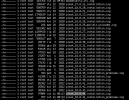- Server operating system version
- Debian 9.11 x86_64
- Plesk version and microupdate number
- Plesk Obsidian 18.0.44.3
I've been trying to fix plesk for some time (a white login page with no content began to appear). Today I messed up even more.
plesk repair all -v
/usr/bin/sw-engine: error while loading shared libraries: /usr/lib/x86_64-linux-gnu/sw/librdbmspp.so.2: invalid ELF header
exit status 127
Similar problem is when sw-engine try to start:
#service sw-engine start
...
#journalctl -xe
...
lut 10 18:13:53 ns3137965 sw-engine-fpm[28926]: /usr/sbin/sw-engine-fpm: error while loading shared libraries: /usr/lib/x86_64-linux-gnu/sw/librdbmspp.so.2: invalid ELF header
lut 10 18:13:53 ns3137965 systemd[1]: sw-engine.service: Main process exited, code=exited, status=127/n/a
lut 10 18:13:53 ns3137965 systemd[1]: Failed to start Startup script for Panel sw-engine.
Today I have done:
# apt-get upgrade
But even before sw-engine won't already started.
plesk repair all -v
/usr/bin/sw-engine: error while loading shared libraries: /usr/lib/x86_64-linux-gnu/sw/librdbmspp.so.2: invalid ELF header
exit status 127
Similar problem is when sw-engine try to start:
#service sw-engine start
...
#journalctl -xe
...
lut 10 18:13:53 ns3137965 sw-engine-fpm[28926]: /usr/sbin/sw-engine-fpm: error while loading shared libraries: /usr/lib/x86_64-linux-gnu/sw/librdbmspp.so.2: invalid ELF header
lut 10 18:13:53 ns3137965 systemd[1]: sw-engine.service: Main process exited, code=exited, status=127/n/a
lut 10 18:13:53 ns3137965 systemd[1]: Failed to start Startup script for Panel sw-engine.
Today I have done:
# apt-get upgrade
But even before sw-engine won't already started.


